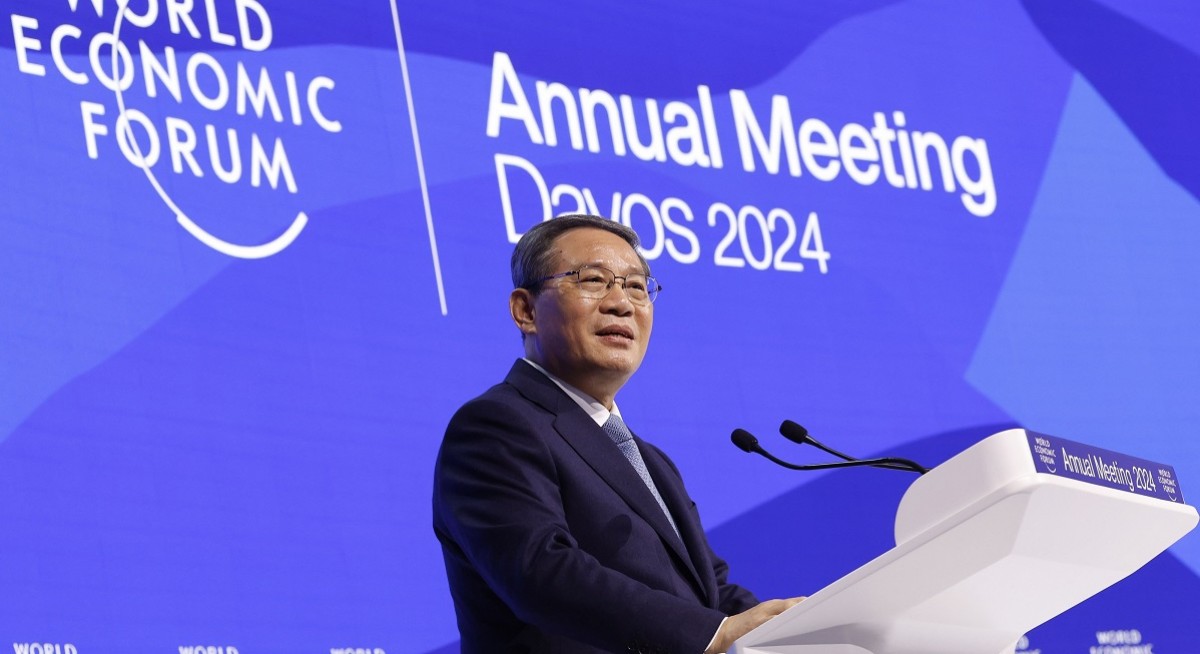In portraying the economy’s trajectory as a success, Li stressed that officials did “not seek short-term growth while accumulating long-term risk” — a veiled reference to Beijing’s old methods of powering growth by borrowing heavily and funding the now-overheated real estate sector.
“Authorities don’t want to give the impression that they are very worried about growth, and they want to try to see the economy through 2024 without significant stimulus,” said Louis Kuijs, chief economist for Asia Pacific at S&P Global Ratings. “There is a risk that they are underplaying the downward pressures on the economy.”
While “bazooka-style” stimulus helped lift the economy out of the global financial crisis more than a decade ago, that debt-fueled expansion led to overcapacity and saddled many local governments with huge financial burdens. Now the ruling Communist Party has to figure out what kind of stimulus — and how much — can help it successfully fend off a deflationary spiral, put a floor under the real estate crisis and create sustainable development.
Chinese-listed stocks in the US fell after Li’s comments in Davos, Switzerland on Tuesday. Following the release of the economic data Wednesday, the Hang Seng China Enterprises Index notched its worst day since October 2022. A benchmark for mainland equities slid as foreigners dumped the largest amount of shares in more than a year.
See also: Treasuries decline on news Chinese banks asked to limit US bonds
With key benchmarks in Hong Kong close to wiping out all gains seen since the late 2022 reopening frenzy, traders are scrambling to find the bottom of the rout. Global funds from the US to Australia are increasingly distancing themselves as doubts over Beijing’s long-term economic agenda drive a structural shift away from what was once a must-have market.
Li seems “to indicate that he is confident China can keep this growth rate without stimulus. I don’t think it will be easy,” said Alicia Garcia Herrero, chief Asia-Pacific economist at Natixis SA.
While the People’s Bank of China took some fairly aggressive steps last month to pump cash into the financial system, it stopped short Monday of cutting a key policy rate, disappointing those who had set widespread expectations for doing so. Bloomberg News reported soon after that China was considering issuing 1 trillion yuan (US$139 billion) in ultra-long sovereign bonds, but markets shrugged that off, too.
See also: China pumping cash to fill US$456 bil liquidity shortfall
“They need to cut rates if they want to reach 5% growth” this year, Garcia Herrero said, adding that China risks making the same mistakes as the Bank of Japan did in not reacting to deflation in the early 1990s, when that nation was beset by a prolonged period of poor economic growth. “They need to move.”
While the data showed some greenshoots — production of electric cars surged 30% last year and solar panel output soared 54% — nominal GDP growth tracked behind real inflation-adjusted GDP growth for a third straight quarter, indicating an extended fall in prices.
China's Economy-Wide Prices in Longest Decline Since 1999 | Broad measure of prices contracts for third straight quarter in 4Q 2023
Property was a major overhang. Real estate investment fell 9.6% last year from 2022. Housing new starts — a key gauge of confidence among developers — plunged 20.9%.
The drop in property investment “has definitely not reached the bottom,” said Jacqueline Rong, chief China economist at BNP Paribas. She called property the “biggest downward pressure on the economy.”
Despite the stunning growth in new manufacturing sectors like EVs, they still don’t contribute enough to the overall economy to completely replace property as a key growth driver.
To stay ahead of Singapore and the region’s corporate and economic trends, click here for Latest Section
“With investment in the property sector falling, the economy is more dependent on the manufacturing sector and service sector,” said Zhang Zhiwei, president and chief economist at Pinpoint Asset Management. “This transition will take time to be accomplished.”
In the meantime, the focus is turning to how much stimulus the government will rely on to fill insufficient demand. More forceful fiscal policies may mean the country sets a higher budget fiscal deficit and issues more debt.
The size of the sovereign debt issuance under consideration, for example, would be relatively limited: China’s economy overall is worth 126 trillion yuan. Rolling out such a program may be more reflective of the nation’s desire to shift debt burdens away from overleveraged local governments than it is about juicing the economy through big stimulus.
The central bank, meanwhile, recently turned to other tools, such as providing low-cost funds to policy-oriented banks to finance housing and infrastructure projects.
It’s early in the year, and policymakers still have scope to take action later in 2024 by reducing interest rates and reserve requirement ratios for banks. But the PBOC’s scope is somewhat constrained, especially as the Federal Reserve has urged caution against expecting rate cuts in the US anytime soon.
“This is what we call reactive easing,” said Robin Xing, chief China economist at Morgan Stanley, in an interview with Bloomberg TV. “They need a more decisive shift to active easing to break this debt-deflation loop.”



